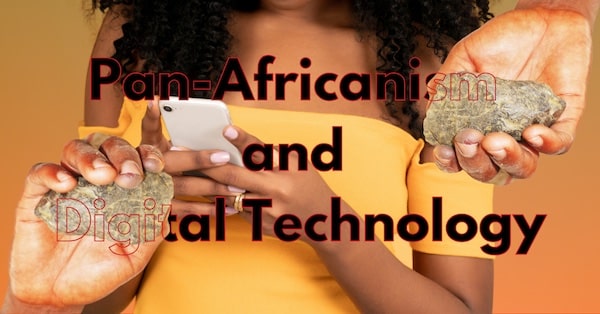Digital technology in its current form is here to stay–or at least until we break the supply chains draining the Congo and her kind–and we know how much of a role it plays in communication. For better and worse, the devices and networks that enable this technology to function have become quite important in the functioning of urban society, and not necessarily the rural communities. It is important to make this distinction because if or when the servers that run the internet that we are so addicted to crashes, it is the people in ‘modern’ society that will lose their collective minds, and not those who have been lucky enough to not have their ideas of human connection and experience completely digitized.
In case it isn’t clear yet, digital technologies in the current way they are being used is doing more harm than good, both to human beings and the environment. From the sheer energy required to keep servers running, batteries charged and screens on, to the criminal environmental and human destruction during raw material extraction processes, it is necessary to keep these grim facts in mind as this can inspire actual action for the better. Pointing out the shortcomings and failings of digital communication technologies (DCT) is the easy part, and while this is important, we must organize our efforts to not only reduce the negative impact that communication technologies have had on us and our collective psyches, but use all advantages we can find in service of African liberation.
Advantages, like ease of communication over long distances, have the negative effect of encouraging an overreliance on that convenience. What does this mean? Online calls on top of online calls are now being referred to as ‘meetings’ when they are just long phone calls. Mental energy and willpower to commit is now spent on making calls, and this goes to further expose the level of alienation workers experience caused by the constant presence of DCT in our lives. Many people actually do want to organize in person, meet new like-minded people and STRUGGLE against abusive states and capitalist governments for the sake of freedom, dignity and communalism. However, this aspiration comes in direct opposition with the fact that millions of Africans around the world are pressured under capitalist societies where physical, mental, and in some cases spiritual energy, is leveraged in the form of economic labor in exchange for resources needed to live a life of dignity. What is the result of this? People are completely drained of ‘productive’ energy, then rewarded with just enough resources to recreate or reenergize themselves and get back into the ‘economy’.
Smartphones, computers and other such devices can help to spread rhetoric of African liberation as well as bring critical information to comrades who are willing to learn. At the same time, these devices are constructed as portals to facilitate the continued extraction of value and profit from users and consumers. With endless advertisements algorithmically tailored to each potential customer, it takes an extra level of awareness to resist the psychological impact of constantly being exposed to irrelevant information masquerading as something useful. We are at the point where these devices that we are practically addicted to, have to be used in a subversive manner, as a means of counteracting the negative impacts of always having them around. We must take note that, as a result of the surveillance capabilities constantly exploited by corporations and governments, these now-important pieces of technology in our pockets, bags, and homes are objects of information warfare AGAINST the interests of we the people. But this is ok; as politically conscious Africans it is nothing new to realize that massive systems of oppressive capitalism or imperialist domination are stacked against us. On one hand it means we must be some kind of threat to such a system’s survival, and on the other it means we have better ideas of who, what, and maybe whereour enemy is, and we can then organize ourselves against these facts.
Personalized digital entertainment through these devices is not a sin. The problem comes when communication technology begins to compromise and hinder the ability and will of Africans to effectively organize against neocolonialism and capitalist operators. Consciously search out liberatory and independent media, keep track of updates shared by revolutionary organizations, and take note of your body and posture when using these devices–seriously, constantly bent necks, curved backs, and sore limbs are not good for long term mental and physical health. The cost of constant access to near limitless amounts of information is VERY HIGH, please comrades take note, it is NOT FREE. Data subscriptions cost money, the batteries consume energy to stay charged, staring at the screen takes a toll on our eyes.
Well, if all these are among the costs of communicating and accessing information, the least we can do is work to discard the systems that enable rampant self-exploitation. There’s the argument that digital communication technology is neutral but considering the fact that it was built within and to support primarily a system of oppression and value extraction, it can be taken as a net-negative. What is to be done? We should make an effort to search out and make use of information that is beneficial to subverting capitalism and gaining liberation and dignity as Africans in REAL LIFE and not cyberspace.

